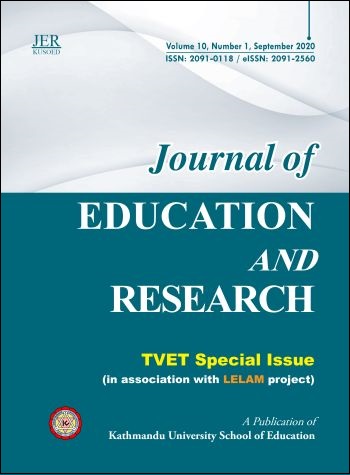Financing of Technical and Vocational Education and Training in Nepal
Keywords:
sustainability, political economy, fiscal equalisation, financing pattern, TVETAbstract
Considering Technical and Vocational Education and Training (TVET) sector as an enabler for the socio-economic transformation of the nation, preparing competitive, skilled human resources has become a global priority, which has ushered increased financing in TVET. Of late, TVET governance has become a greater policy concern in Nepal mainly to address the constitutionally designated functions between the three tiers of government as well as to establish a sustainable financing mechanism for better TVET service delivery. Mixed methods approach was applied using survey, questionnaire and focused group discussion, including secondary information to capture the current TVET financing domain from the federal line ministries. The study found that TVET financing has been influenced mainly by the national economy, equity and inclusion, inter-governmental coordination, global political context, external funding, private sector engagement, and mobilisation of the youth. This study reveals that though the trend of budget allocation for TVET is highly correlated to the total national budget and total education budget, the actual allocation still seems significantly low to achieve the Sustainable Development Goal 4 targets and the government policy of quality expansion of TVET. The study explores specific models on TVET financing and indicates the viability of integrating funds so that TEVT can serve as an avenue for national prosperity.




